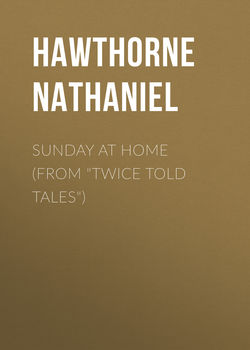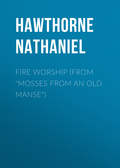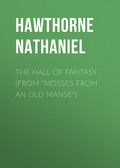
000
ОтложитьЧитал
SUNDAY AT HOME
Every Sabbath morning in the summer time I thrust back the curtain, to watch the sunrise stealing down a steeple, which stands opposite my chamber-window. First, the weathercock begins to flash; then, a fainter lustre gives the spire an airy aspect; next it encroaches on the tower, and causes the index of the dial to glisten like gold, as it points to the gilded figure of the hour. Now, the loftiest window gleams, and now the lower. The carved framework of the portal is marked strongly out. At length, the morning glory, in its descent from heaven, comes down the stone steps, one by one; and there stands the steeple, glowing with fresh radiance, while the shades of twilight still hide themselves among the nooks of the adjacent buildings. Methinks, though the same sun brightens it every fair morning, yet the steeple has a peculiar robe of brightness for the Sabbath.
By dwelling near a church, a person soon contracts an attachment for the edifice. We naturally personify it, and conceive its massive walls and its dim emptiness to be instinct with a calm, and meditative, and somewhat melancholy spirit. But the steeple stands foremost, in our thoughts, as well as locally. It impresses us as a giant, with a mind comprehensive and discriminating enough to care for the great and small concerns of all the town. Hourly, while it speaks a moral to the few that think, it reminds thousands of busy individuals of their separate and most secret affairs. It is the steeple, too, that flings abroad the hurried and irregular accents of general alarm; neither have gladness and festivity found a better utterance, than by its tongue; and when the dead are slowly passing to their home, the steeple has a melancholy voice to bid them welcome. Yet, in spite of this connection with human interests, what a moral loneliness, on week-days, broods round about its stately height! It has no kindred with the houses above which it towers; it looks down into the narrow thoroughfare, the lonelier, because the crowd are elbowing their passage at its base. A glance at the body of the church deepens this impression. Within, by the light of distant windows, amid refracted shadows, we discern the vacant pews and empty galleries, the silent organ, the voiceless pulpit, and the clock, which tells to solitude how time is passing. Time, – where man lives not, – what is it but eternity? And in the church, we might suppose, are garnered up, throughout the week, all thoughts and feelings that have reference to eternity, until the holy day comes round again, to let them forth. Might not, then, its more appropriate site be in the outskirts of the town, with space for old trees to wave around it, and throw their solemn shadows over a quiet green? We will say more of this, hereafter.








